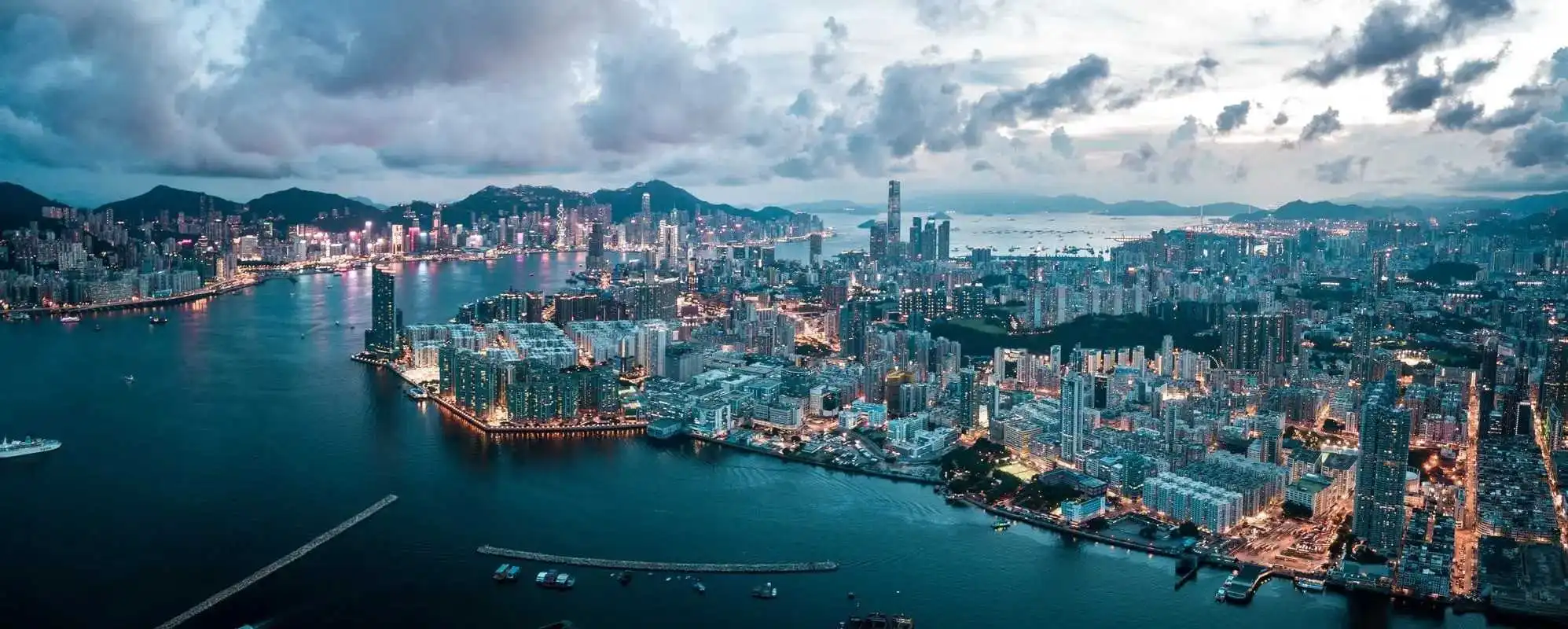About
Hong Kong is located in the South China Sea 100 miles southeast of Guangzhou (formerly known as Canton). The total land area is 1,064 sq km with the main island covering 76 sq km and Kowloon and the New Territories as the remainder. As of the 1st July 1997 under the Sino-British Agreement of December 1984 Hong Kong became a Special Administrative Region (HKSAR) of the People’s Republic of China. The Basic Law, which is the Constitution of the HKSAR, is intended to maintain the HKSAR and the PRC as separate governmental, legal and economic systems. This is known as the “One Country, Two Systems” concept. Hong Kong is governed by a Chief Executive and a Provisional Legislature. The Chief Executive is voted in by an electoral college and endorsed by the Preparatory Committee, the latter also approving candidates for the Provisional Legislature. One of the major tasks of the Provisional Legislature is the devising of the electoral system for future elections to the first Legislative Council.
Licensed by The Hong Kong Registrar of Companies
More about Hong Kong
The legal system of Hong Kong is English Common Law supplemented by locally enacted Ordinances. Under the Basic Law the U.K. court system and U.K. law, except that a local Court of Final Appeal will replace the Privy Council in London, are guaranteed to remain in place for 50 years unless the matter in question involves a threat to PRC national security. There is now a bilingual legal system with Ordinances being translated into Chinese but English will continue to prevail. There are an excellent range of professional services available as Hong Kong serves as the major business centre for the whole of the Asia Pacific.
The local currency is the Hong Kong Dollar which is freely interchangeable but has a pegged exchange rate against the US Dollar. There are no exchange controls.
The handover of Hong Kong to China has been the cause of some concern for the local population and has led to many seeking to take out a second or new nationality. Australia, Canada, New Zealand, USA and UK have attracted many Hong Kong emigrants but many of those return to Hong Kong having qualified for an alternative passport and actively pursue their business interests in the territory. With its access to China and the Greater Bay Area, Hong Kong looks set to remain the most important financial and service centre within Asia.
Hong Kong has a very open economy and there are no restrictions on foreign investment or on the transfer of income and capital in foreign currencies.
The main attraction of investing in Hong Kong lies in its establishment as a worldwide financial and market trading centre and a gateway for markets in the Asian Pacific Region. It is doubtful whether anywhere else in the world offers the same financial freedom as Hong Kong and puts fewer barriers in the way of setting up and operating a business. The whole infrastructure of Hong Kong is specifically geared to allowing free enterprise to flourish with a minimum of bureaucracy and restrictions. These factors have undoubtedly contributed greatly to the unprecedented economic success of Hong Kong and remain a popular IPO destination.
Hong Kong is one of the world’s leading financial, economic and trading centres. It is an integral financial centre which supports the establishment of substantial trading enterprises in addition to being useful in an international tax planning context. The financial infrastructure available in Hong Kong ranks among the best in the world and is comparable with such cities as New York and London. Further, Hong Kong does not suffer from the relatively high tax regimes and complicated revenue enforcement and collection machinery encountered in those aforementioned cities.
Latest News
Please contact us if you have any questions or queries and your local representative will be in touch with you as soon as possible.


